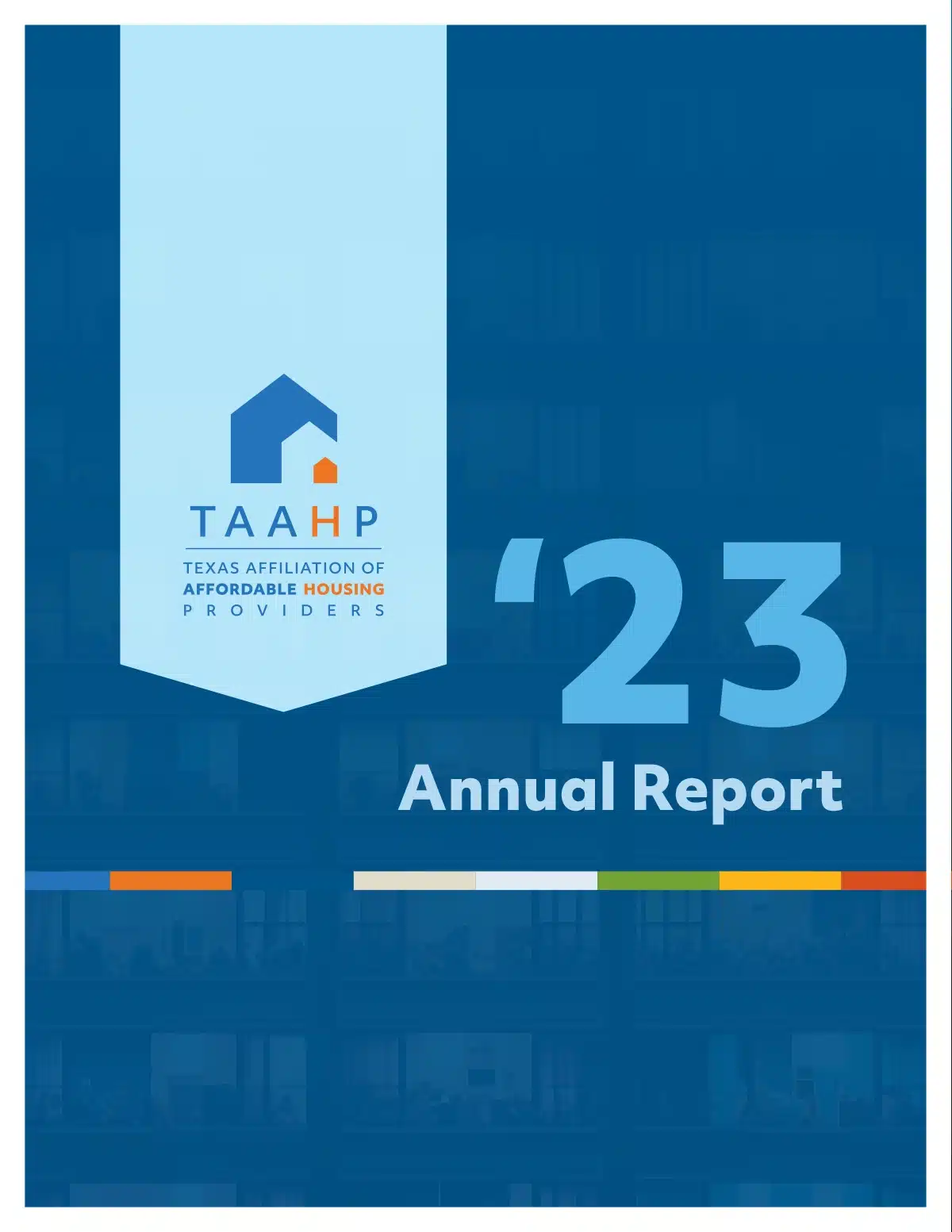Senate Intergovernmental Affairs Committee
The Texas Senate recently released their 86th Interim Legislative Charges for each of their committees. A review of the (LI)HTC program is listed as the committee’s top priority! The charges for the Senate Intergovernmental Relations Committee are listed below:
- Low-Income Housing Tax Credit Program: Review existing regulations governing the Low-Income Housing Tax Credit Program and the Qualified Allocation Plan to determine whether regulations exist that unnecessarily increase the cost of developing and maintaining affordable housing. Make recommendations to provide regulatory relief and provide greater development of affordable housing in Texas.
- Federal Housing Review:
- Study all federal housing programs accessible to Texas.
- Make recommendations that ensure the state maximizes the use of those programs.
- Infrastructure Resiliency:
- Examine the authority special purpose districts have to generate natural disaster resilient infrastructure.
- Determine ways state government can work with special purpose districts to mitigate future flooding and promote more resilient infrastructure.
- Make recommendations on how special purpose districts may use their statutory authority to assist in mitigating damage from future natural disasters.
- Monitoring:
- Monitor the implementation of legislation addressed by the Senate Committee on Intergovernmental Relations passed by the 86th Legislature, as well as relevant agencies and programs under the committee’s jurisdiction.
- Specifically, make recommendations for any legislation needed to improve, enhance, or complete implementation of the following:
The Senate Intergovernmental Affairs committee held their first interim public hearing on Thursday, December 5th. This was an organizational meeting with only invited testimony. A second interim hearing is expected January 23, 2020 in Brownsville, Texas.
House Urban Affairs Committee
The Texas House of Representatives released their 86th Legislative Interim Charges for each House committee. The charges for the Urban Affairs Committee did not include any affordable housing related issues. Their priorities are:
- Monitor the agencies and programs under the Committee’s jurisdiction and oversee the implementation of relevant legislation, including the following:
- HB 304, which relates to the governance of municipal management districts. Monitor municipalities’ changes to governance of municipal management districts. Examine the potential utility of a standardized template for creation of municipal management districts.
- HB 1136, which relates to the process for creating a tourism public improvement district. Monitor municipalities that elect to create tourism public improvement districts by petition.
- HB 2858, which relates to adoption of a uniform swimming pool and spa code. Examine the process by which municipalities plan and implement the uniform swimming pool and spa code.
- Examine municipal ordinances and policies and their impact on local businesses and citizens and the overall impact on the economic health of the state and well-being of residents. Examine and make recommendations regarding municipal ordinances relating to the short-term rental industry, paid sick leave policies, and homelessness issues.
- Examine the cybersecurity needs of municipalities and other local governmental entities. Review steps taken to prepare for and respond to cyber-attacks, including what resources are available from the state and federal governments. Make recommendations for best practices.
- Monitor the State Auditor’s review of agencies and programs under the Committee’s jurisdiction. The Chair shall seek input and periodic briefings on completed audits for the 2019 and 2020 fiscal years and bring forth pertinent issues for full committee consideration.

